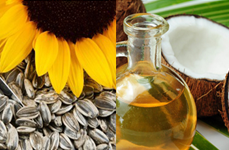Are you thinking about getting in on the collagen trend? We don’t blame you. It’s hard to say no to a protein that does so much, from helping keep joints healthy to boosting skin hydration and elasticity—and it even boasts some gut-supporting benefits too!
But as with any new wellness trend, you probably have questions. Especially considering there are a lot of different types of collagen supplements available. And what about gelatin? Are collagen and gelatin the same thing?
Read on! We’ll answer these questions and more in this post.
What is Collagen?
Collagen is the primary protein in connective tissue, skin and bones. Actually, we have more collagen in our bodies than any other type of protein—it makes up 25-35% of the entire body’s protein! Collagen is found in skin, muscles, tendons, and it’s a natural part of cartilage, bone and other tissues.
There are at least 16 kinds of collagen in the body, most of which belong to one of three categories—Type I, Type II, or Type III—each with unique characteristics and serving various purposes in the body.
For example, collagen Type I, which makes up a large part of your skin, is very strong and can stretch a great deal without breaking. It helps keep your skin firm and youthful. Bones also contain some Type I collagen fibers.
Type II collagen is a major component of the cartilage in your joints, as Type II collagen fibers impart strength and compressibility.Type III collagen is found alongside Type I collagen in skin, as well as in blood vessels and organs.
And that’s just the beginning! Collagen has many diverse roles. But our natural collagen declines with age, contributing to a wide range of problems, from wrinkles to joint concerns and more. Environmental and lifestyle factors can affect collagen levels too. For example, spending time in the sun can be particularly harsh on the collagen in your skin.
What is Gelatin?
Gelatin is collagen that is cooked long enough for the amino acids to start breaking down into smaller components, which are then extracted, filtered, then dried into sheets or powdered. The gelatin sheets or powder can later be dissolved in hot water for use. Common sources of collagen used to make gelatin include the skin, bones and connective tissues of cows, chicken, pigs and fish.
Gelatin still contains collagen protein, and it’s great for hair and nails. Gelatin supplements do exist, but you’re more likely to find it in your pantry for use in desserts and soups.
What is Hydrolyzed Collagen?
Put simply, the act of hydrolyzing something means to break it down using water. There are varying degrees of hydrolyzation. Gelatin is partially-hydrolyzed collagen.
In hydrolyzed collagen (also known as collagen hydrolysate), amino acid bonds are broken down even more than in gelatin—the result is collagen that is easily dissolved in either cold or hot water, and easily digested by the body since the proteins are smaller.
Hydrolyzed collagen has the same amino acid profile and comes from the same sources but reacts differently to liquids, and it doesn’t work as a thickener like gelatin. Technically, most collagen in supplements is hydrolyzed to some degree so it’s easier for your body to digest.
Using Gelatin & Collagen Hydrolysate
There are many ways to use collagen hydrolysate and gelatin to get a dose of beneficial amino acids. Gelatin and collagen hydrolysate are both flavorless, so they are very versatile, but they can’t be used interchangeably.
Collagen hydrolysate will not “gel” as gelatin does, so it can’t be used in recipes that request gelatin like marshmallows, puddings or fruit snacks. But unlike gelatin, collagen hydrolysate will dissolve in cold or hot liquids, so you can add it to almost anything!
What’s the Best Collagen Supplement?
Like the collagen in your body, collagen supplements are available in several different types and forms. You’ll most often see collagen supplements labeled Type I, Type II and Type III, as well as bone broth collagen.
So, which should you choose? Here’s a quick rundown of the uses of each to help you decide.
Type I Collagen is usually taken to target skin elasticity and skin hydration, as well as to strengthen nails and thicken hair. It’s often derived from marine sources of collagen, like in Swanson Ultra Hydrolyzed Fish Collagen Type I.
Type II Collagen is most often taken to support joint health and mobility, like Swanson’s Chicken Sternum Collagen Type II, made with a patented form of collagen clinically-shown to support joint health.
Type III Collagen is usually found in combined supplements, most often along with Type I collagen, as is the case in the body. Try it in NeoCell Super Collagen to promote total body health and provide building materials for growth and maintenance of healthy tissues.
Bone Broth Collagen has taken the wellness world by storm. It’s a nourishing way to get all three types of collagen in one supplement. Try it in Swanson’s Real Food Bone Broth Collagen, made from USDA certified bovine bones and available in unflavored, vanilla and chocolate.
To learn more about the skin-loving, joint-supporting benefits of bone broth collagen, read What is Bone Broth & Bone Broth Benefits?
What Are the Benefits of Collagen, Gelatin & Collagen Hydrolysate?
• Skin Support: Helps maintain skin elasticity and hydration, which may help minimize the appearance of skin aging. An 8-week study on the effects of collagen supplementation on skin revealed better skin hydration and improved density of collagen in skin.
• Bone Health: Collagen plays a role in bone health and collagen from bone broth contains bone-supporting minerals like magnesium and calcium.9,10 But the amounts of these nutrients in bone broth are typically low, so don’t rely only on bone broth collagen for these nutrients.
• Promotes Joint Health and Mobility: Collagen is a natural part of cartilage, bone and other tissues that relate to joint health.11 And bone broth collagen may be particularly beneficial for joints because it also contains glucosamine and chondroitin. Studies show glucosamine and chondroitin may support joint comfort and help minimize age-related cartilage breakdown.
• Supports Strong Hair & Nails: Collagen is protein, and protein is a building block of hair and nails, so getting enough protein in the diet supports hair and nail growth. And supplementing with collagen may boost nail growth by as much as 12% while reducing breakage.
• Bone Broth for Digestion: Amino acids in collagen and gelatin may help balance the gut, aid digestion and support a healthy gastrointestinal tract.
• Exercise Recovery: Collagen supplements may support connective tissue after your workout during exercise recovery, and it may provide joint benefits throughout your sweat session too.
Nourish Your Body from Within
What’s not to love about collagen? Whether you’re looking for beauty nutrition to help keep your glow, stronger hair and nails, joint health support in general or during exercise, or just overall wellness support from a boost in protein, collagen will make a welcome addition to your wellness routine.
Tell us how you like to use collagen. Do you take it as a collagen supplement, or mix bone broth collagen into your favorite smoothies? We’d love to hear about your favorite ways to use it.
|
|























LEAVE A COMMENT :
Comments sort : Newest / Oldest / Most Upvoted